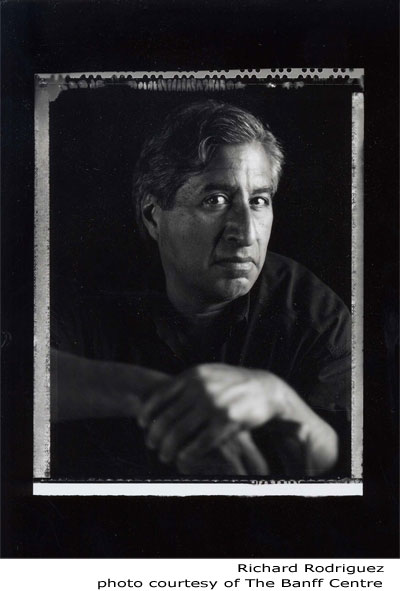
THE BELIEVER: I’m reminded of my own worries about journalism as much of it moves toward a nonprofit model, funded—like much of literature and academia already is—by grants, awards, foundations, and benefactors who keep it existing because they think it should exist, but not necessarily because anyone has asked for it.
RICHARD RODRIGUEZ: If I find out, the next time I see you, that you’re teaching journalism, I think I’ll slit my wrists, because then it becomes merely a perpetuation of itself, without any external reason for it.
BLVR: I have different things to say about my own journalism program at UC Berkeley, but with MFA creative writing programs, there is this problem: “Come under my wing for fourty thousand dollars a year and you can be like me—successful.” And we think, Of course he’s successful; he gets to teach all of us, when in reality, he has to teach because he’s not successful at all.
RR: [Gives a thumbs-up] Yes, yes.
BLVR: So often, it’s as if these programs exist only to employ people.
RR: All right, except that you’re a consumer. You exist in a society where consumers exert a great deal of power. You can start asking those questions. The issue of education that’s not being deliberated right now is astonishing. There are careers to be made right now by asking those questions. You know, the guy who owns PayPal, Peter Thiel, he’s pretty good. He thinks what education is is basically the banks. It’s just selling you something, and it’s taking your money, and it’s not doing anything for you, it’s just taking your money. And it’s telling you that if you invest in this stock, “BA,” that it’s going to be worth something in five years. [Laughs] And it’s not worth anything!
A lot of the techies in Silicon Valley are arguing against the whole idea of a structured education system. But that’s because a lot of them are solitary creatures. They’re geniuses who didn’t become geniuses in a classroom. They became geniuses almost in spite of a classroom. That doesn’t work for all people. Basically what education is for a lot of people is a social experience. In other words, you and I are classmates. There was a lecture today on Thomas Jefferson, and it was kind of hard, I didn’t get the last part of it. And I say to you after class, “Did you understand what he was saying?” And you say, “Some of it,” and I say, “What exactly did he mean when he said such and such?” That’s how education happens. It’s not simply University of Phoenix, me sitting at a computer. It’s this interaction. It’s...
You have reached your article limit
Sign up for a digital subscription and continue reading all new issues, plus our entire archives, for just $1.50/month.
Already a subscriber? Sign in




